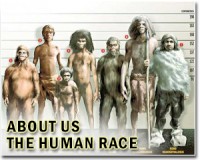| . |  |
. |
Houston (UPI) Mar 9, 2011 U.S. researchers say a study has confirmed the human brain has three concentric layers of working memory where it stores and processes short-term memory items. Scientists from Rice University and Georgia Institute of Technology say the study could settle a long debate about how many layers there are and what the function of each is, a Rice release reported Wednesday. The researchers said short-term memory operates in three areas: a core focusing on one active memory item; a surrounding layer holding at least three more active items; and a wider region containing passive items that have been tagged for later retrieval or "put on the back burner." However, they say, the core region, called the focus of attention, has three roles, not two as proposed by previous researchers. First, it directs attention to the correct item; second, it retrieves the item; and third, if necessary, it updates it. The researchers also discovered that practice, or repletion of a particular memory task, can enhance the focus of attention to store four items in the core. "When you do the same sequence over and over again, your memory can be partially automated so you have the ability to do another task concurrently," Rice psychology professor Chandramallika Basak said. For example, he said, as you drive the usual route to your regular grocery store, you might also be thinking about what to fix for dinner and making a grocery list. "Predictability can free up resources so a person can effectively multitask," he said. However, that same secondary task -- the grocery list -- becomes more difficult when driving to a different grocery store using an unfamiliar route, he said.
Share This Article With Planet Earth
Related Links All About Human Beings and How We Got To Be Here
 Southern Africa may be home of modern man
Southern Africa may be home of modern manStanford, Calif. (UPI) Mar 8, 2011 Modern humans may have originated in southern Africa, where hunter-gatherer populations had the greatest genetic diversity, British researchers said Tuesday. Extensive studies indicate the region was the best location for the origins of modern man, challenging the school of thought that modern humans migrated from eastern Africa, researchers told the BBC. Genetic diversity is an indicat ... read more |
|
| The content herein, unless otherwise known to be public domain, are Copyright 1995-2010 - SpaceDaily. AFP and UPI Wire Stories are copyright Agence France-Presse and United Press International. ESA Portal Reports are copyright European Space Agency. All NASA sourced material is public domain. Additional copyrights may apply in whole or part to other bona fide parties. Advertising does not imply endorsement,agreement or approval of any opinions, statements or information provided by SpaceDaily on any Web page published or hosted by SpaceDaily. Privacy Statement |